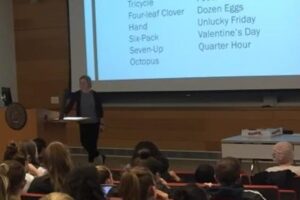Editing Teaching and Learning Inquiry: Building Community through Publication
Journal editing ranks as one of the most intellectually stimulating things I have ever taken on. Stimulating and hectic. So I’m very lucky to have such a skilled partner in Nancy Chick. With every decision Nancy and I make, we are conscious of the feeling that we are trying to build something. The key question, of course, is: Just what are we building?
A great deal of the discourse related to the scholarship of teaching and learning relates to communities. Is that what we are trying to build? Very probably. But what sort of community is best associated with the International Society for the Scholarship of Teaching and Learning? This is an important question for Nancy and me to consider.
Certainly, we aspire to help build an international community of SoTL scholars. We are always pleased to see well-written manuscripts submitted from all corners of the world. We need more of these papers, and we need to think of ways to encourage them.
Are we looking for a community of high-level SoTL experts, or those who are seeking support and mentoring as they make early forays into the world of SoTL? Nancy and I think the answer to this question is “yes.” But saying yes simultaneously to these two aspirations is difficult. At times, they feel mutually exclusive—we either select for cutting-edge expertise or for development. That said, we are not convinced that these are, in fact, mutually exclusive aspirations. Both communities can be built together as we all learn from each other. On top of this, along with the privilege of reading the sage wisdom of SoTL’s most well-established thinkers, Nancy and I have thoroughly enjoyed the fresh perspectives we have received from people who have not “lived and breathed” SoTL culture for many years.
Are we building a community of researchers or commentators? Again, “yes.” For Teaching and Learning Inquiry to truly realize its stated mandate, its pages must feature a wide range of genre and article types. You might read one paper that reports linear regression analysis and have it followed by a piece on how to more authentically engage student voices in SoTL, followed by a poetic rendering of teaching across cultural boundaries.
In other words, whatever communities we are trying to build, they will not be defined by sameness. While this doesn’t make the building any easier, we believe this diversity is at the heart of what ISSOTL is about, and what TLI should be about.
From Gary Poole




